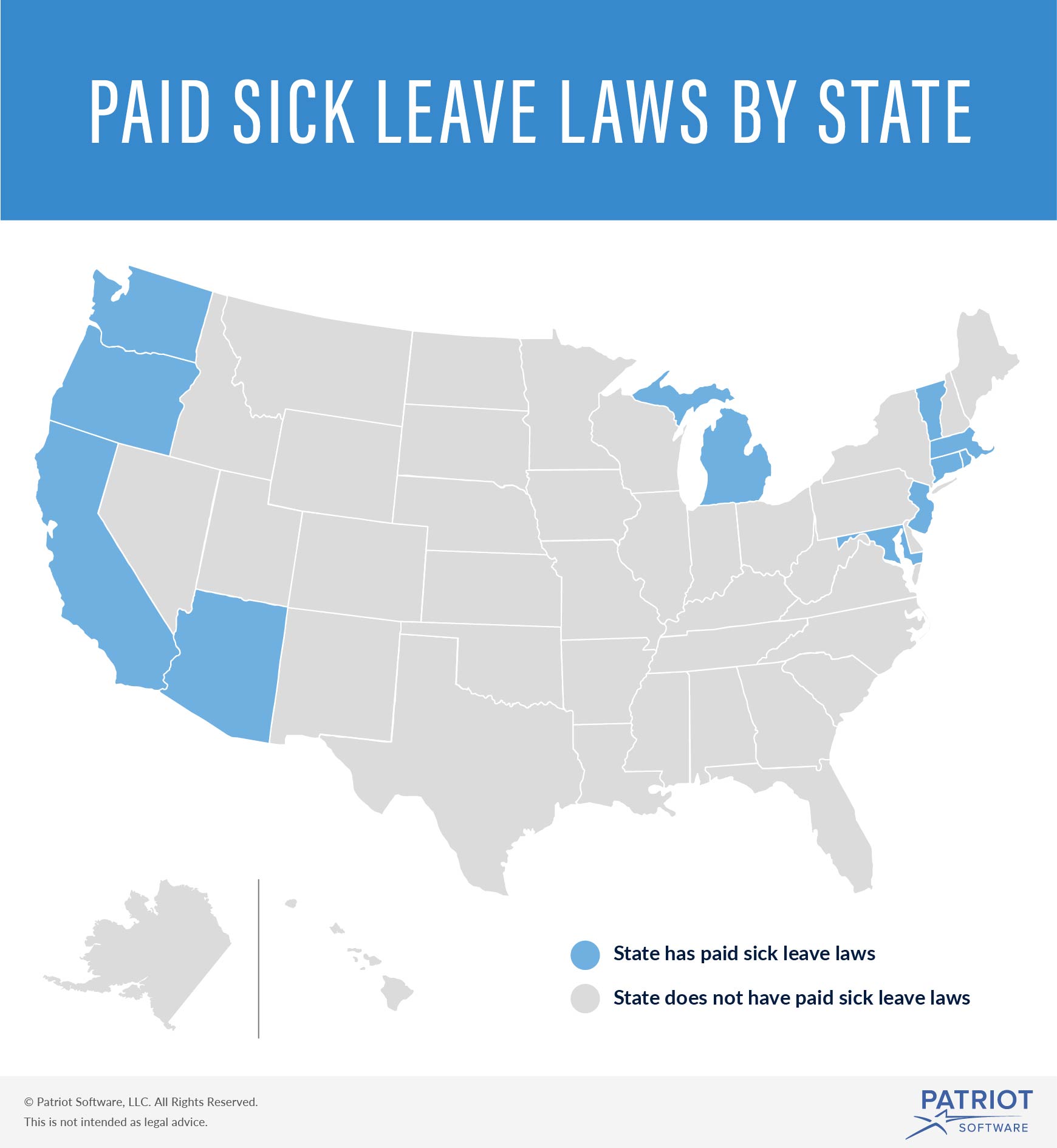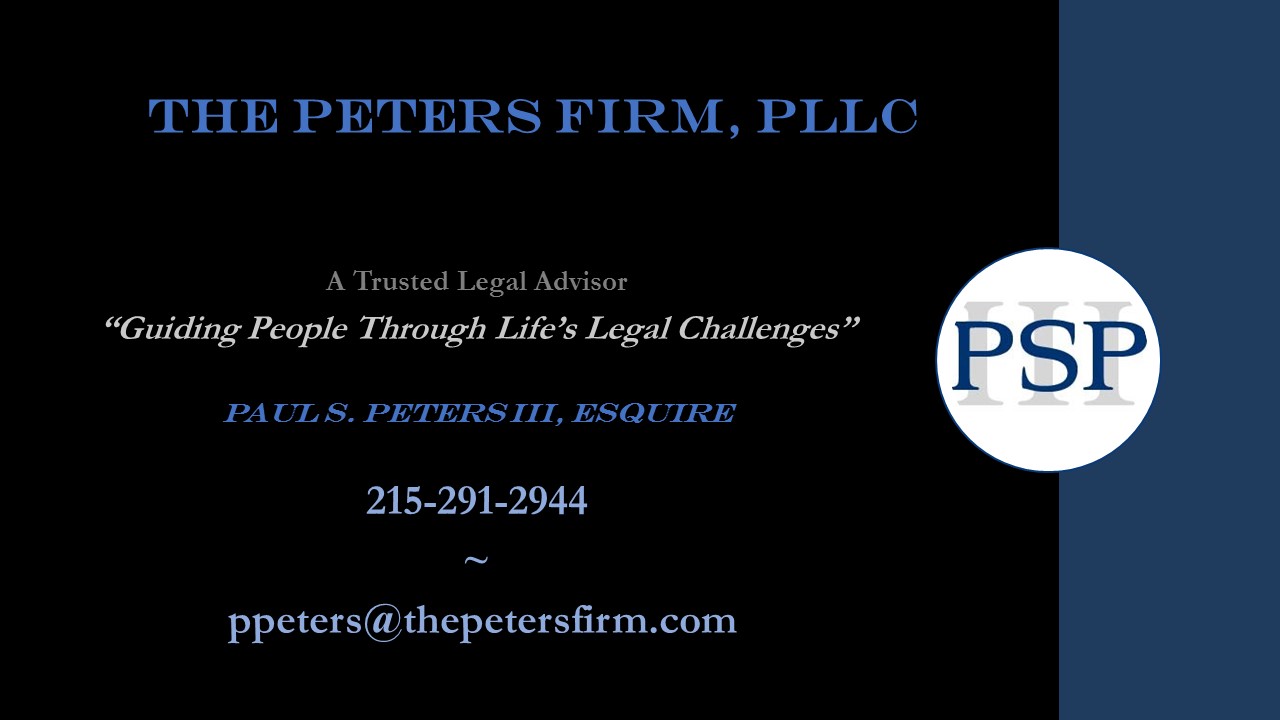
What are the Paid Time Off Rights for Pennsylvania Employees?
When faced with an illness, life event, child demands, or needing some time off: What are the Paid Time Off Rights for Pennsylvania Employees?
There are different types of Paid Time Off for Pennsylvania Employees. Some are protected by law, some are a perk or benefit, and some are paid, but many are unpaid.
Types of leave or absences from work
1. Paid Time Off (PTO) – Vacation, Sick Time, Personal Time
2. Family Medical Leave Act (FMLA)
3. Americans with Disability Amendments Act (ADAA)
4. Maternity/Paternity Leave
Paid Time Off (PTO)
PTO may look different from company to company. Some have a PTO policy that incorporates all vacation, sick and personal time; some companies have separate allotments of vacation, sick and personal time; and some provide a combination. For the purposes of this post, I will refer to this PTO as being all-encompassing.
PTO is a benefit typically provided to create a positive and motivating work environment and to allow employees time off from work to relax or attend to personal and family illnesses or issues. While in most cases, PTO is not something that is required by law, depending on where you work or the industry you work in, the law may require specific amounts of PTO to be provided to employees, usually for sick or safe leave.
PHILADELPHIA – Philadelphia requires employers with 10 or more employees to provide paid sick leave based on the employee’s job classification and hours worked. Employees are eligible to earn 1 hour of paid sick time for every 40 hours worked. Employers with 9 or fewer employees are required to provide unpaid sick leave. A maximum of 40 paid sick time hours may be earned in a calendar year. Earned paid sick time can be used for the employee’s own health needs, to care for a family member or for leave due to domestic abuse or sexual assault. Independent contractors, adjunct professors, seasonal workers, and state and federal employees are not eligible for this time.
Laws vary from state to state on whether accrued but unused PTO must be paid upon termination of employment. The way in which your employer’s policy is written can impact this as well. It is best to review your company’s policies and practices on how unused PTO is handled upon termination from work.
Family Medical Leave Act (FMLA)
FMLA is a federal law requiring some employers to allow employees to take up to 12 weeks of UNPAID time off from work each calendar year. An employer can opt to pay you for a portion of or the whole 12 weeks, but the law does not require payment, it just requires holding the employee’s position, or returning the employee to an equivalent position.
The general requirements are:
1. The employer has 50 or more employees within a 75-mile radius
2. The employee requesting leave has been at the company for at least:
a. 12 months; and
b. Worked 1,250 or more hours in that 12 months
3. The leave is for one of the following reasons:
a. Birth and/or care of a newborn child;
b. Adoption of a child or the placement of a foster child;
c. Care of an immediate family member with a serious health condition;
d. Serious health condition of the employee; or
e. Certain circumstances related to the deployment of an immediate family member
FMLA applies to private and public employers, as well as to men and women.
Your employer must keep your health insurance in place but may require you to pay 100% of the premium. Your employer cannot retaliate against you for taking FMLA leave. FMLA can be taken intermittently (in smaller increments) in certain cases where the situation or medical condition requires it.
When you are ready to return to work, the employer must return you to the same job position and pay, and if that position is no longer available then you must be placed in a position of equal stature and pay.
FMLA is UNPAID leave unless you qualify for short-term disability payments (STD), workers compensation payments (WC), or are permitted to use accrued vacation or PTO time to pay for your time on FMLA.
As the employee, you will have certain obligations you must comply with to apply and be approved for FMLA leave. There are time limits on how long you are given to provide medical certifications and documentation. If you do not comply with these, your employer can deny your leave. Speak with your employer’s HR department in advance of needing leave (when possible) or immediately following the start of your leave to ensure you know what you need to do to comply with their policy and not miss any deadlines that could impact your approval.
An employer may count the time you are out for a Worker’s Compensation injury against your 12 weeks of FMLA leave. If this occurs, your employer must notify you that Worker’s Compensation and FMLA are running concurrently. Worker’s compensation pertains to pay and benefits while out for the injury, it does not necessarily provide job protection. It is FMLA that creates a period of guaranteed job protection. Therefore, if you are absent from work under Worker’s Compensation longer than the 12 weeks of FMLA, your employer is not obligated to protect your position, but must comply with Worker’s Compensation laws pertaining to your continued pay and benefits.
Americans with Disabilities Amended Act (ADAA)
The ADAA creates requirements for Reasonable Accommodations by your employer which may include leave or time off from work due to a disability. If you do not qualify for FMLA, either due to length of service with your employer, or because they are too small to be required to comply with FMLA, you may be entitled to an accommodation for leave under the ADAA. This leave could be unpaid unless you are eligible for payments through a short-term disability program (STD), or use accrued PTO, vacation or sick time to pay during this time off.
A common request for time off under the ADAA is after an employee has given birth to a child but does not qualify for leave under FMLA. In many cases, medical professionals will certify a mother post-childbirth as disabled for a period of time requiring a leave from work accommodation under the ADAA. This length of medically certified leave may differ for natural childbirth vs. a cesarean section.
If you request an accommodation of leave under the ADAA, your employer will require that you go through what is known as the “interactive process”, which is an exchange of information with you, as well as your physician regarding what accommodation is needed, how long it is needed and if it is medically necessary. The company will review this information and determine if the request is “reasonable” under the law, and determine if it will be approved.
Like the FMLA, it is important for you to understand your responsibilities during this process. Your employer is permitted to require certain documentation and time during the process to make an approval. If you do not follow this process or provide what is necessary in a timely fashion, your request could be denied even if it has merit. Talk to your employer’s HR department about the process ahead of time, or shortly after needing the leave so you do not lose any time.
Maternity and Paternity Leave
These terms are often used in the workplace and have different meanings from employer to employer. In some cases, Maternity and Paternity Leave is just alternate terms to describe FMLA leave. Whereas, some employers offer a type of Maternity or Paternity leave in addition to what FMLA provides. In those cases, Maternity and Paternity leave in addition to FMLA leave is something employers offer as a perk to employees to (1) create an incentive to work for the employer; (2) create loyalty to the employer; or (3) to help retain and ensure the return of female employees after childbirth or adoption. This leave may be paid or unpaid and provide additional job protection to what is required under FMLA.
As you can see there are multiple types of absences from work. Some that are paid, some that are unpaid. Some are required by law, and some are provided as a benefit. I have not described every type of leave in this post, but I hope I provided some basic information on the most common types of leave.
If you ever have questions about what your rights are regarding absences from work, you should first speak with your employer’s HR Department, and of course, you can always speak with a trusted attorney.
If you are an employee and believe your rights to Paid Time Off have been violated or you are an employer who is uncertain about Paid Time Off rules or dealing with allegations of a violation, it is important you contact a trusted and experienced Employment Law Attorney. You may contact Paul S. Peters III, Esquire at:
215-291-2944
ppeters@thepetersfirm.com



